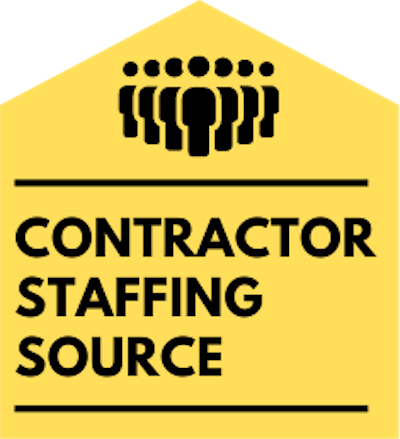Navigating the Legal Aspects of Home Building Sales: A Comprehensive Guide
From understanding construction contracts to selecting the right builder, we’ll go in-depth about the protections you should consider when making one of the largest investments of your life. We’ll also examine the importance of inspections and the potential pitfalls of building a home and investments you should consider. With the use of this guide, you’ll be able to make an educated choice when it comes time to purchase your dream home.
When selling a home that you have built, it is important to ensure that all necessary building and safety regulations were adhered to. Additionally, you need to make sure that all local taxes and fees associated with selling a home are paid in accordance with your jurisdiction’s laws.
Overview of Home Building Sales
The importance of having proper legal counsel when partaking in home building sales cannot be stressed enough. Both buyer and seller should be aware of their respective rights and obligations, especially when it comes to matters such as liability and warranty issues. Having a qualified attorney who specializes in real estate law can help ensure that things go smoothly throughout the entire transaction. Additionally, consulting reliable sources of information pertaining to home building sales such as county websites and guidance documents can provide an added layer of protection that neither party should overlook.
Now that we have a wider understanding of the legal aspects associated with home building sales, let’s move onto what types of roles each party plays during the sale process itself. With careful consideration between both buyer and seller, navigating through this process becomes less daunting, setting all parties up for success.
Key Points to Remember
Home building sales are a complex process that requires understanding of local laws, regulations, and procedures. It is beneficial for buyers as they have the ability to customize homes according to their needs, while sellers can exercise more control in terms of price negotiations. To ensure all parties benefit, legal counsel should be consulted and reliable sources of guidance consulted. Careful consideration between both parties throughout the sale process helps all parties be successful.
Seller and Buyer Roles in the Sale
When it comes to home building sales, the roles of sellers and buyers are of utmost importance. Sellers must understand that their responsibility lies in providing information about the home for sale to potential buyers as transparently as possible, as well as providing clear terms and conditions when a buyer decides to move forward with making a purchase. Buyers must understand that they need to do due diligence before purchasing a home and should be aware of the state laws governing such transactions. They should also ensure that all documents related to their agreement with the seller are properly signed and legally binding.
It is also important for both sellers and buyers to understanding what happens in typically happens during a home sale transaction. Buyers should make sure they know the specifics of what they’re buying, such as knowing what land is included in the sale, is there any repair work or other details associated with the home that must be taken care of by the seller or buyer etc. In addition, buyers should bear in mind that most sellers will have a real estate clause built into their agreement so that if any legal issues arise regarding the sale, a professional can help them resolve them. For sellers, their main goal should be to protect themselves against potential legal liabilities by having an attorney review all relevant documents prior to transfer of ownership.
Though each party has obligations in a home building sale, it is important for both sides to remember that there are protections available to them should something unforeseen happen during the process. As we now transition into exploring key documents involved in these types of transactions, it is essential for buyers and sellers alike to understand how they can secure their rights throughout this process.
- In the United States, all states have their own specific laws pertaining to the sale of a newly constructed home.
- A common requirement for many states is that a seller must provide potential buyers with full disclosure about the condition of the property and any known issues that could affect its value.
- In California, sellers must provide prospective buyers with a mandatory statutorily required Natural Hazard Disclosure (NHD) report prior to entering into any real estate transaction involving a newly constructed home.
Key Documents in Home Building Sales
When discussing key documents in home building sales certain sensitive topics must often be disclosed. These include extent of improvements made on the property, zoning issues, potential taxes or assessments and other legalities related to the sale. These are typically included in a “Seller’s Disclosure Statement”, which inform the buyer of conditions of the property and defines items excluded from the sale such as fixtures or appliances. The statement should also disclose any matters that affect marketability of the property such as easements or encumbrances, which may limit transferability of ownership rights.
The buyer will commonly provide proof of mortgage loan agreement and earnest money deposit to prove financial ability to purchase. Other documents that must be signed by both parties include a Property Deed, where ownership is transferred, a Closing Statement summarizing fees and expenses paid out of escrow funds, and affidavits declaring various elements of the transaction has been agreed upon and fulfilled by both sides. Signing these documents creates legally binding obligations between seller and buyer so understanding them before they are executed is critical for successful completion of real estate transactions.
Finalized copies of these key documents may become important pieces of evidence in court should legal action ever become necessary for a dispute related to the sale. Home building companies with experienced legal counsel who are familiar with these rules are most able to navigate potential disputes with favorable outcomes. As such, ensuring proper documentation throughout a sale is essential for both buyer and seller protection. Now that we’ve touched on various roles each party plays in a homebuilding sales process as well as key documentation needed in place, we’re ready to move onto covering contract negotiations and agreements between both parties.

Contract and Agreement
Before signing any contract or agreement for a home building sale, it is important for both parties to review all of its terms thoroughly. This will help ensure that both parties understand all commitments made in the contract and there is no misunderstanding on either side. Additionally, buyers should be prepared to negotiate certain aspects of the contract so that they can get the best possible deal and have legal protection in place to protect their interests. For example, buyers might want to negotiate appliances as part of a package deal, discounts for completing future work on their own, or even alterations to existing construction plans. Unless these terms are written into the contract prior to signing, they may not be legally binding down the line.
Overall, it is important for buyers and sellers to familiarize themselves with all relevant contract law before entering into agreements related to home building sales. Doing so will help ensure all parties involved are protected throughout the entire process and any potential disputes can be quickly resolved should they arise. As we move forward into discussing how financing works within home building sales, it is crucial to remember that contracts and agreements set up a binding framework for both buyers and sellers which should not be taken lightly.
Transaction Closing and Escrow Account
When it comes to closing transactions, there are two main points of view. The first point of view holds that transactions should be closed quickly and efficiently without taking too much time or creating too much paperwork so that both sides can benefit from a swift completion of the agreement. On the other hand, others believe that taking time during this momentous process can have several advantages such as making sure all parties understand what they are signing and creating more assurance when it comes to important details like payment amounts and dates.
Regardless of which side you take, it is important to ensure that all involved parties have access to reliable documentation and that any taxes or fees regarding the transaction are paid correctly and accounted for. Additionally, setting up correctly functioning escrow accounts can help protect both parties from potential disputes down the line by ensuring safe and secure payments before any documents are finalized or signed.
Once all legal aspects are taken care of for the transition, it’s time to move forward with dispute resolution for home building sales; an essential part of successfully completing any transaction regarding home ownership or building.
Dispute Resolution for Home Building Sales
One option is mediation. Under this option, an impartial mediator assists parties in coming to an agreement without recourse to litigation. Mediation is often less costly and more efficient than going to court and provides more control over the outcome that may be preferable for all parties. It is also non-binding and allows for creativity when determining a solution.
Arbitration is another alternative for dispute resolution that involves third-party fact finding and decision making by an arbitrator or panel of arbitrators who reviews evidence and makes a binding determination regarding the outcome of the dispute. This process is typically less expensive and quicker than having a court trial but still can lead to pricey costs based on levels of complexity.
Litigation is also an option for resolving disagreements over a home building transaction. This method includes going through a court system as lawyers present evidence in order to reach an outcome or settlement. Litigation is often time consuming and costly compared to other methods but should be considered when dealing with larger matters or where urgency is needed due to contractual timelines to resolve issues.
In conclusion, when it comes to disputes in home building sales, both parties have options available ranging from out-of-court settlements to more complicated processes such as arbitration and litigation. The best course of action will depend on individual circumstances as well as the type of dispute that has arisen.

Common Questions Answered
blank
Are there any laws governing the sale of newly built homes in my state?
What legal documents are required to complete a home building sale?
The first and most important document is the purchase agreement, which includes details about the sale and any contingencies that the buyer requires. This document spells out the price of the home and outlines any special conditions of the sale, such as financing or inspections.
This is followed by deed documents, which transfer title ownership from the seller to the buyer. The deed also records information such as the property address, tax identification number, deed of trust (if financing is involved), and any liens or encumbrances on the property.
In addition, buyers may need to provide various additional documents such as proof of insurance, disclosure statements regarding hazardous materials on the property, utility bills, proof of occupancy inspection (required by some states), and documentation showing compliance with applicable building codes.
Finally, once all of these documents have been completed and signed by both parties, closing papers must be prepared for signing at a closing attorney’s office. These documents will include loan papers such as mortgage notes and deeds of trust. Depending on local regulations and customs, other paperwork such as escrow instructions may also be needed at this time.
By thoroughly understanding all of the legal documents required for a successful home building sale, buyers and sellers can be assured that their rights are protected throughout the process.
What contract clauses should buyers be aware of when purchasing a newly built home?
1) Purchase Price: Carefully review the purchase price specified in the contract. Keep in mind that this number is not just for the base cost of the home but may also include land cost and fees associated with mortgages (if applicable). In addition, there may be certain incentives or financing options being offered to buyers that may change the overall purchase price. Be sure to read all paperwork carefully.
2) Obligations of Parties: A thorough understanding of all parties’ obligations is essential prior to signing a contract. This will help to ensure both parties are informed of their responsibilities during and after construction of the house. Consider who is responsible for cleanup, utility hook-ups and any additional structural changes that arise during construction.
3) Warranty Provisions: Many contracts come with warranties covering any repairs or replacements needed due to materials or craftsmanship defects. Make sure you understand what is being covered before signing a contract as it could save you money down the road should something go wrong with your newly built home. Understand how long these warranties last as well as what type of repairs will be required by the builder in each situation.
4) Completion Dates: Establishing a timeline is crucial when entering into a contract to purchase a newly built home. Not only do buyers need to have an understanding of when construction will begin and end, but they must also consider potential delays or unforeseen circumstances that could occur during the building process. Additionally, clarify expectations for when payments for services should be made by both parties in order to avoid any confusion or financial disputes throughout construction.
By being aware of all these important elements within a contract prior to signing, buyers can feel secure in purchasing a newly built home, knowing that all appropriate measures have been put in place for their protection.





